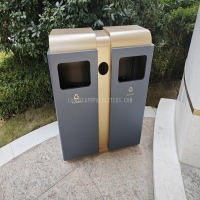Welcome to the website for landscape facilities products and knowledge.
What are the environmental impacts of disposing of or recycling the Landscape Round Table at end-of-life?
When a Landscape Round Table reaches the end of its service life, the disposal path chosen creates significantly different environmental footprints. If directed to a landfill, the table contributes to solid waste accumulation and potential soil contamination. The materials, whether treated wood, metal components, or composite plastics, may leach chemicals into groundwater systems over decades of decomposition. Particularly concerning are pressure-treated woods containing copper-based compounds and plastic elements releasing microplastics into ecosystems.
Recycling presents a markedly better environmental alternative, though challenges exist. Metal components like aluminum frames offer high recyclability with minimal quality loss, requiring only 5% of the energy needed for primary production. Wood elements face greater complexity—untreated varieties can be repurposed as mulch or biomass fuel, while treated woods often require specialized handling to prevent toxin release. Composite materials frequently end up in downcycled applications rather than true closed-loop recycling.
The most environmentally responsible approach involves designing Landscape Round Tables with circular economy principles from inception. Manufacturers increasingly employ modular designs allowing component replacement rather than full table disposal, alongside using mono-materials that streamline recycling processes. Some forward-thinking companies have implemented take-back programs, directly repurposing materials into new furniture lines.
Consumer responsibility plays an equally crucial role. Proper maintenance extends product lifespan dramatically, while seeking certified recyclers ensures environmentally sound processing. Before disposal, consider creative repurposing—transforming a weathered table into garden planters or art installations embodies true sustainability.
The ultimate environmental impact hinges on collective action between manufacturers prioritizing recyclable design and consumers making informed end-of-life decisions. Through conscious material selection, proper maintenance, and responsible disposal channels, the ecological burden of Landscape Round Tables can be substantially minimized, preserving natural resources for future generations while maintaining beautiful outdoor spaces today.
Related search:

Recommendation
Double-bucket garbage bin, outdoor, metal, multi-color, powder-coated, double-bucket trash can